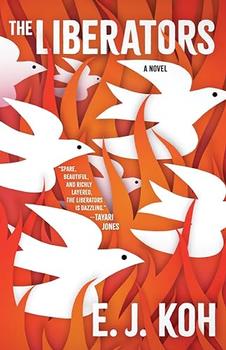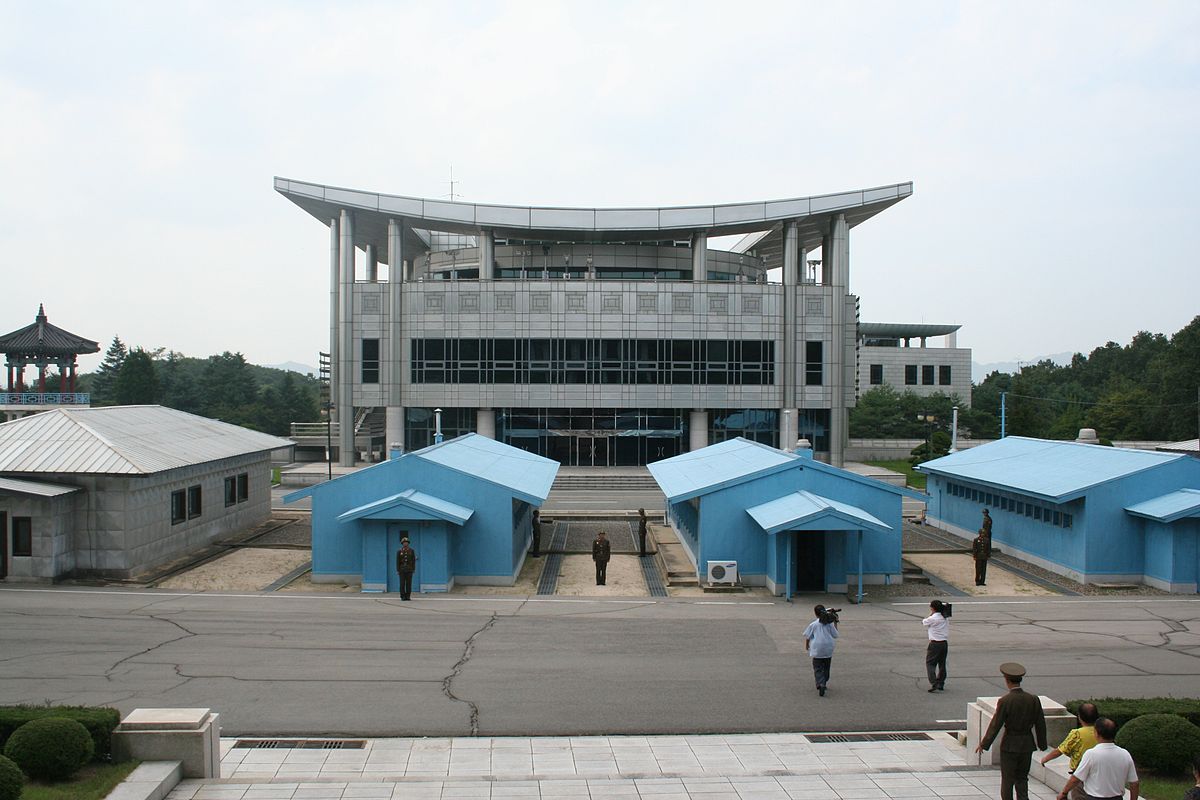Summary | Excerpt | Reviews | Beyond the Book | Read-Alikes | Genres & Themes | Author Bio

This article relates to The Liberators
 In EJ Koh's The Liberators, Insuk's friend Robert is an activist passionately in favor of the reunification of North and South Korea. Korea was occupied by Japan from the early 20th century through 1948; when the Japanese surrendered at the end of World War II, Korea was split along the 38th parallel by the United States. The northern region was occupied by the Soviet Union, and the southern by the US. This was meant to be a temporary solution to instability but the split has continued through the present day, cemented in part by the Korean War. Efforts toward and talk of reunification have been a regular part of Korean diplomacy ever since.
In EJ Koh's The Liberators, Insuk's friend Robert is an activist passionately in favor of the reunification of North and South Korea. Korea was occupied by Japan from the early 20th century through 1948; when the Japanese surrendered at the end of World War II, Korea was split along the 38th parallel by the United States. The northern region was occupied by the Soviet Union, and the southern by the US. This was meant to be a temporary solution to instability but the split has continued through the present day, cemented in part by the Korean War. Efforts toward and talk of reunification have been a regular part of Korean diplomacy ever since.
In 1972, North and South Korea issued the July 4 South-North Communiqué, which presented three ideals intended to pave the way to reunification — independence, peaceful unification, and national unity. However, no tangible progress was made by this declaration due in part to conflict between President Park Chung-hee (of South Korea) and President Kim Il Sung (of North Korea).
The next major milestone was the Inter-Korean Summits, taking place in the early 1990s. Over eight meetings in Seoul, the two halves hammered out the Inter-Korean Basic Agreement, which renounced armed conflict and encouraged cultural and economic exchange. In the years that followed, South Korea provided a great deal of financial assistance to North Korea, where food insecurity was a frequent problem.
In The Liberators, Koh mentions South Korea's Sunshine Policy, which emerged in the late 1990s and early 2000s. It was based on three principles (as outlined in Sunshine in Korea [2002] by Norman D. Levin and Yong-sup Han): "no toleration of North Korean armed provocations, no South Korean efforts to undermine or absorb the North, and active … attempts to promote reconciliation and cooperation between the two Koreas." It was introduced by President Kim Dae-jung, who won the Nobel Peace Prize for his efforts in 2000. Despite vastly altering inter-Korea relations for over a decade, the Sunshine Policy is declared by many to be a failure because it did not achieve lasting reconciliation or reunification.
In a recent opinion piece for the New York Times, Korean journalist and filmmaker Haeryun Kang writes about the conflicting feelings about reunification that she has experienced over the course of her relatively short lifetime. She recalls witnessing a moment of triumph during the 2018 Seoul Olympics when North and South Koreans competed together on the same ice hockey team to cheering crowds of spectators chanting "We are one!" but notes that the percentage of South Koreans who express a desire for reunification seems to be waning based on a recent opinion poll. She explains:
"I still dream that all Koreans can have the freedom to meet each other, for separated families to reunite, for North Korean defectors to safely return home if they want. But those things seem as distant as ever."
In January 2024, reunification took another step backward when Supreme Leader Kim Jong Un declared that cooperative efforts between the two Koreas had been a "mistake." The situation continues to evolve, but in his incendiary statements that refer to South Korea's close relationship with the United States, it is evident that the shadow cast by US involvement, in 1948 and up until the present day, has played no small part in the ongoing conflict.
North-South Korean border, 2011
Photo by MIchael Day (CC BY 2.0)
Filed under Places, Cultures & Identities
![]() This article relates to The Liberators.
It first ran in the January 24, 2024
issue of BookBrowse Recommends.
This article relates to The Liberators.
It first ran in the January 24, 2024
issue of BookBrowse Recommends.




Show me the books he loves and I shall know the man...
Click Here to find out who said this, as well as discovering other famous literary quotes!
Your guide toexceptional books
BookBrowse seeks out and recommends the best in contemporary fiction and nonfiction—books that not only engage and entertain but also deepen our understanding of ourselves and the world around us.